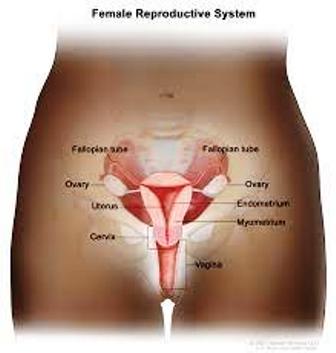About 70 000 cervical cancer deaths could be averted annually in the African region if the efforts to end the disease by 2030 are urgently stepped up to ensure increased access to critical services for timely detection, care and prevention.
Health leaders and donors meeting for the Seventy-third session of the World Health Organization (WHO) Regional Committed for Africa this week in Gaborone, Botswana, called on countries to act swiftly to bolster essential health services to adequately address cervical cancer in the region which is home to 19 of the 20 countries globally with high burden of the disease.
Under the WHO global targets to eliminate cervical cancer as a public health problem by 2023, countries need to vaccinate 90% of women and girls with the human papilloma virus vaccine, attain 70% cancer screening, and have 90% of women and girls with cancer on treatment.
Currently, 26 countries in the African region have introduced the human papilloma virus vaccine and only 31% of girls by the age of 15 received the first of the vaccine in the region in 2022. Just 16 countries have introduced human papillomavirus-based screening at the sub-national level.
To meet the 2030 global targets, vaccination coverage should reach 90% of women and girls in 20 countries by 2024; and in at least 10 countries, national screening rates should reach 25% of women aged 30–49 years; and treatment rate increased to 25% in these countries.
“The health and well-being of women is the health and well-being of our nations. Women are healthy when they feel valued, acknowledged, appreciated and empowered. In turn healthy women contribute to healthy families, communities and societies. It is for that reason that as African First Ladies we are committed to ensure cervical cancer elimination is achieved within one generation,” said H.E. Mrs Neo Jane Masisi, First Lady of Botswana
Due to low prioritization by governments, inadequate financial and human resources are allocated to cervical cancer control programmes. Limited capacity of health workers to provide comprehensive prevention and control services, low level of awareness and health literacy about the disease as well as high cost of supplies and vaccines hamper effective control.
Nonetheless, the region has made progress in recent years against cervical cancer. For example, nearly 40% of countries that provide the first dose of the vaccine to girls have reached 70% coverage.
“Cancer illness is painfully devastating and affects families profoundly. But through early detection, care and prevention with vaccines, women and girls in our region can be protected from cervical cancer,” said Dr Matshidiso Moeti, WHO Regional Director for Africa. “Scaling up the efforts for better access to cancer control services is a top priority for WHO in its support to national health priorities to defeat diseases and improve the health and well-being of the region’s population.”
WHO is working with partners and donors to support governments to prioritize cervical cancer control to ensure increased access to screening, vaccination and treatment. The Organization is also bolstering strategies such as single-dose vaccination, integrating human papillomavirus vaccine into existing health programmes to expand prevention and treatment.
“As a member of the African Cervical Cancer Network which met in Gaborone last week, we are calling on all African leaders to ensure cervical cancer is eliminated,” said Graça Machel, Founder of the Graça Machel Trust and the Foundation for Community Development. “Bold commitments and strategic investment must be targeted towards prevention, screening, treatment, and social supports. Our first line of defense is the effective HPV vaccine. This is a safe, life-changing and life-saving vaccine. We only need one dose to protect adolescents and women and bring us closer to eliminating the horrors of cervical cancer.”
Efforts are also being made to address inequities to address limited access to services among vulnerable populations as well as launching of initiatives to ensure equitable access to affordable vaccines, screening with high performance test, especially among high-risk groups.
In addition, working collaboratively with communities, youth organizations, NGOs and the private sector is critical in widening access to cancer control services. Cervical cancer, mainly caused by human papillomavirus, is the fourth most common in women worldwide, causing over 300 000 deaths annually.
“The burden of cervical cancer disproportionately affects women in lower income countries, where HPV vaccine access has been limited,” said Chris Elias, president of Global Development at the Bill & Melinda Gates Foundation.“The Bill & Melinda Gates Foundation is committed to supporting the WHO African Region as they build a strong foundation for HPV vaccination programs and ensure that these highly effective, life-saving tools are reaching the girls and women who need them most.”

